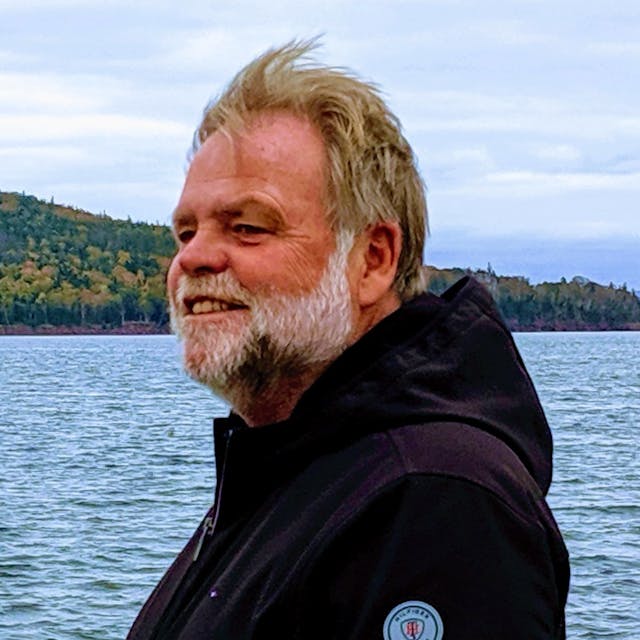Answering The Call
6 min read

Keep Calm and Move Forward: Wisdom from Howard Thurman

by Bruce G. Epperly, Ph.D.
These days, I wake up each morning with a troubled soul. My newsfeed reports on an uncertain future for our nation and planet. The economic growth we have known for the past four years is in jeopardy and I fear that our nation’s democracy is in peril. Hate, incivility, divisiveness, and destruction seem the order of the day.
Yes, I have a troubled soul. But I am not the first American to feel powerless in the face of events out of their control. The land of the free and the home of the brave is also the instigator of slavery and Jim Crow, genocide of First Americans, and concentration camps for Japanese citizens. While I enjoy privileges that they could not imagine as the powers and principalities sought to crush them physically, spiritually, and legally, I am confronted with the questions: How do we find inner peace when the norms that have defined government and economics are collapsing before our eyes? How do we find strength to stride toward justice?
We need to treat these troubled and uncertain times with the same spiritual intentionality as we would facing a diagnosis of a life-threatening illness in a spouse, child, grandchild, or ourselves. We need to commit ourselves to physical, spiritual, and emotional healing to face our personal, natural, or planetary apocalypse, knowing that our healing contributes to the healing of the earth and its peoples.
In the following paragraphs, I share a practice grounded in the vision of one of my mentors the African American mystic and activist Howard Thurman (1899-1981) to enable us to face the future with calm and courage, and to move forward toward God’s Beloved Community.
For Thurman, the journey inward allows us to face the evils of the outer world. While there is much we cannot control in our external situation and our inner lives, we can choose to align ourselves with the Everlasting Love of God whose love outlasts evils of this day. A student of scripture, Thurman no doubt leaned on the wisdom of Psalm 46 in times of trial.
God is our refuge and strength,
a very present help in trouble.
Therefore we will not fear, though the earth should change,
though the mountains shake in the heart of the sea,
though its waters roar and foam,
though the mountains tremble with its tumult.
There is a river whose streams make glad the city of God,
the holy habitation of the Most High.
God is in the midst of the city; it shall not be moved;
God will help it when the morning dawns.
The nations are in an uproar; the kingdoms totter;
he utters his voice; the earth melts.
The Lord of hosts is with us;
the God of Jacob is our refuge…
“Be still and know that I am God!
I am exalted among the nations;
I am exalted in the earth.”
The Lord of hosts is with us;
the God of Jacob is our refuge.
“Be still and know that I am God.” There is an inner sanctuary that cannot be breached by the slaveowner or oligarch. Finding a place of quiet is essential to calm the troubled soul. The Psalmist does not deny the harsh realities of life but discovers within them a peace that passes understanding in quiet companionship with God. Thurman asserts that:
We must find sources of strength and renewal for our own spirits, lest we perish…First we must learn to be quiet, to settle down in one spot for a spell. Sometime during each day, everything should stop and the art of being still must be practiced. For some temperaments, it will not be easy because the entire nervous system and body have been geared over the years to activity, to overt and sense functions.*
In such moments, “one is engaged in nothing at all except being still.” Even for the more extroverted person focus is still essential, stepping back from the demands of life is necessary to experience calm in the storm. “We must, each one of us, find his own time and develop his own particular art of being quiet.” My time of stillness is meditation and contemplative prayer at the dawn of a new day, and then an hour walk in which I collect my spirit and pray for the well-being of others. For my more extroverted wife, who is an Annuitant Visitor for the Pension Boards, it is her daily journal in which she reflects on the movements of God in the challenges she faces.
As we ponder the economic and political uncertainty, “there is a balm in Gilead” that heals the troubled soul, and that balm is entering the quiet place where God’s vision and our own can join, the still small voice can be heard, and we receive inspiration and strength for the journey ahead.
*Howard Thurman, Deep is the Hunger (Richmond, IN: Friends United Press, 1951), 175.
Speak with a Licensed Professional Counselor or Work/Life Specialist.
Get help managing your emotions during stressful situations by contacting Health Advocate, and speaking with a Licensed Professional Counselor or Work/Life Specialist through their Member Assistance Program by calling 1.877.240.6863.

by Rev. Bruce G. Epperly, Ph.D.
Bruce Epperly is a theologian, pastor, and author of over eighty books, including “The Jubilee Years: Embracing Clergy Retirement,” “101 Soul Seeds for a Joyful Retirement,” and “Jesus: Mystic, Healer, and Prophet.” He may be reached at drbruceepperly@gmail.com.
Be open to the leading of the One who is accompanying you through this, and in all, of your journeys.Rev. Dr. Martha M. Cruz
RELATED ARTICLES
Snow Day Slowdown
A New Year's Epiphany
POPULAR RESOURCES
Securing Your Foundation for the Ministry of Others
Changes in your ministry role, unexpected life events, or other personal challenges can impact your financial wellbeing and retirement plans. Secure your financial foundation.
